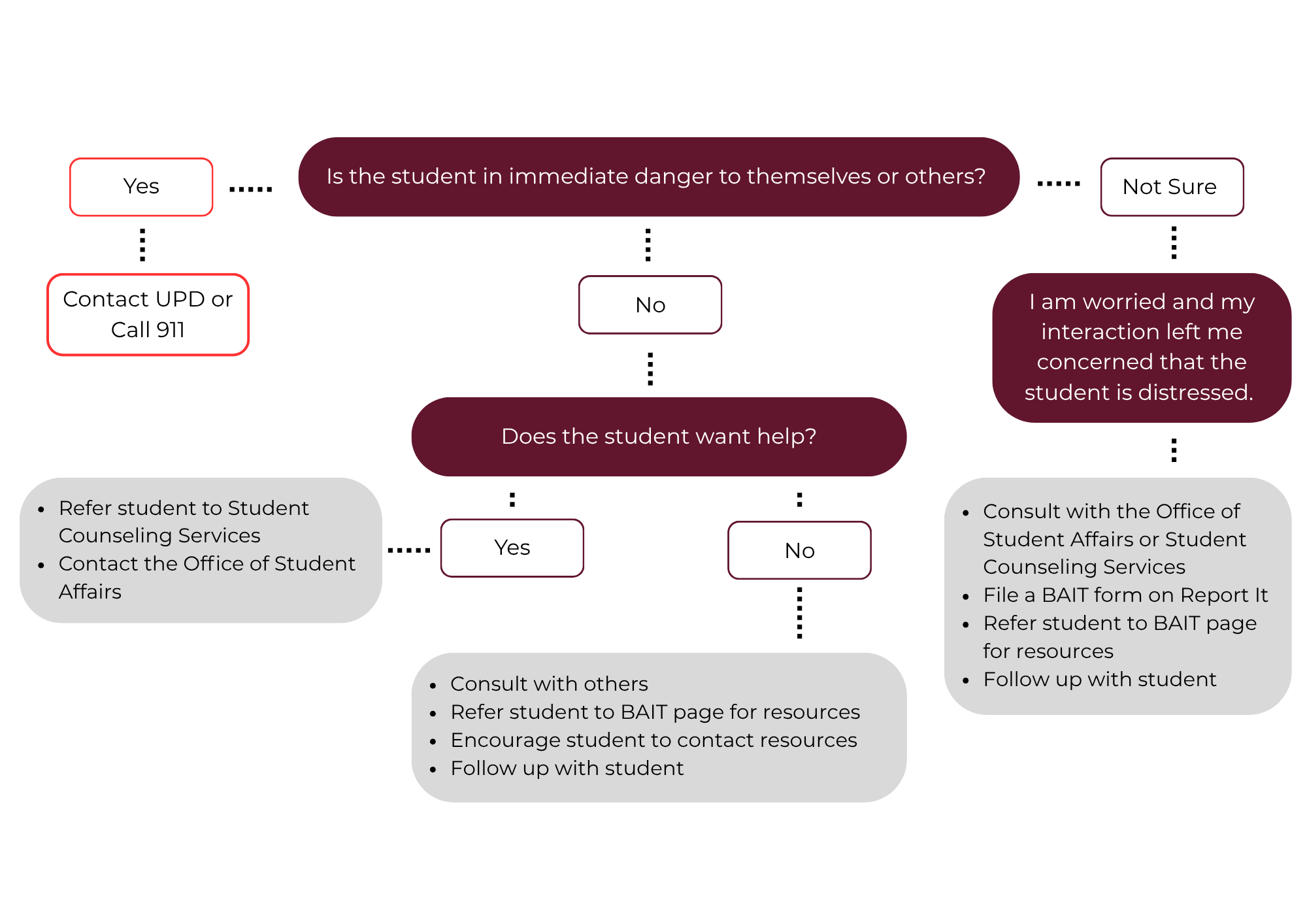Glossary of Terms
Crisis: A time of intense difficulty or challenge, leading to feelings of being overwhelmed, confused, or unable to cope.
Imminence: The quality of being ready to occur, impending, or dangerously near.
Psychological Fear: Intense fear or anxiety felt internally when perceiving an imminent threat, triggering physiological responses even without physical danger.
Psychological Safety: The belief that one can express themselves without fear of negative consequences to self-image, status, or career. It's about creating an environment where individuals feel comfortable being themselves, sharing their thoughts, and making mistakes without fear of judgment or retribution.
Registered Disability: A student formally registered with Student Disability Services, having requested, and been granted academic adjustments based on supporting documentation.
Targeted Violence: Any premeditated act of violence directed at specific individuals, groups, or locations, violating U.S. or State criminal laws.
True Threat: When a speaker communicates a serious expression of intent to commit an act of unlawful violence to a particular individual or group of individuals.
Welfare Check: A police request to check on someone who may be a danger to themselves or others, a child at immediate risk, or a criminal situation of immediate concern.

